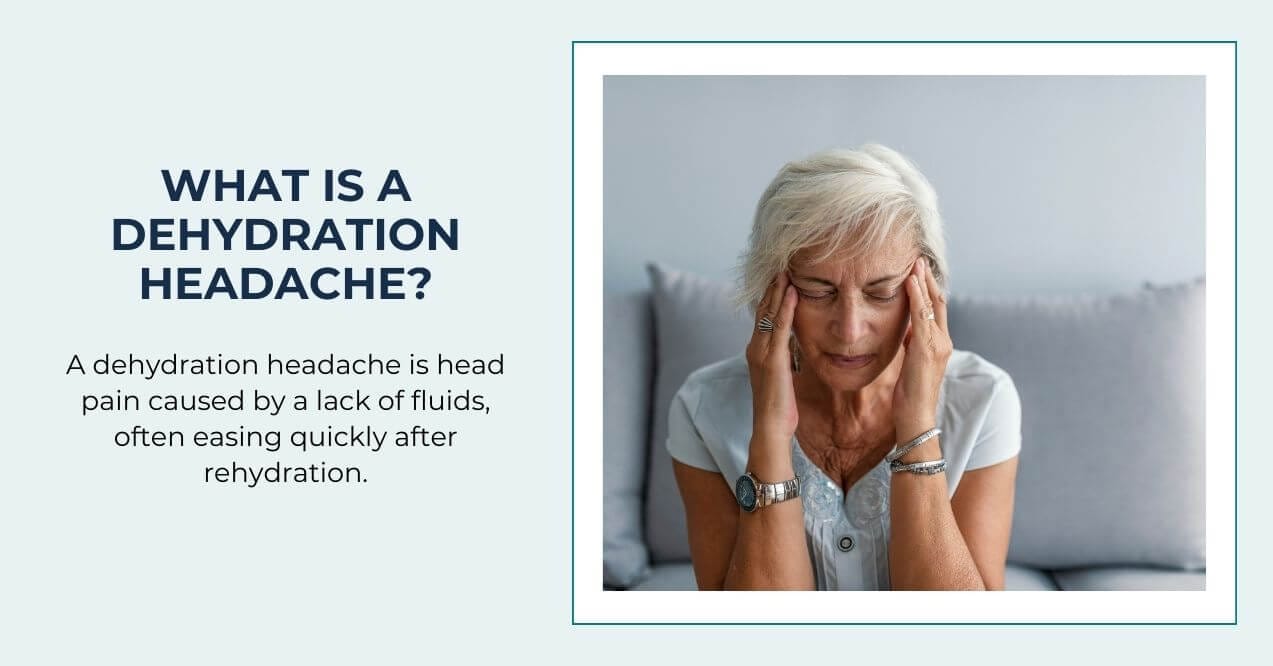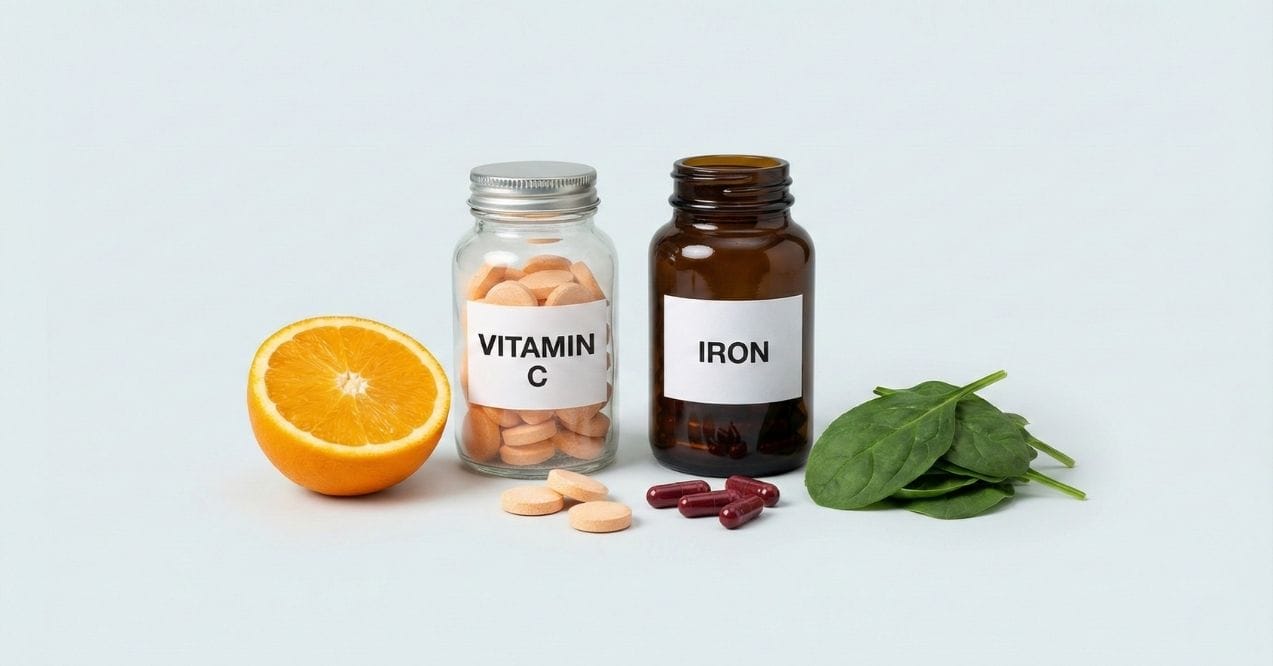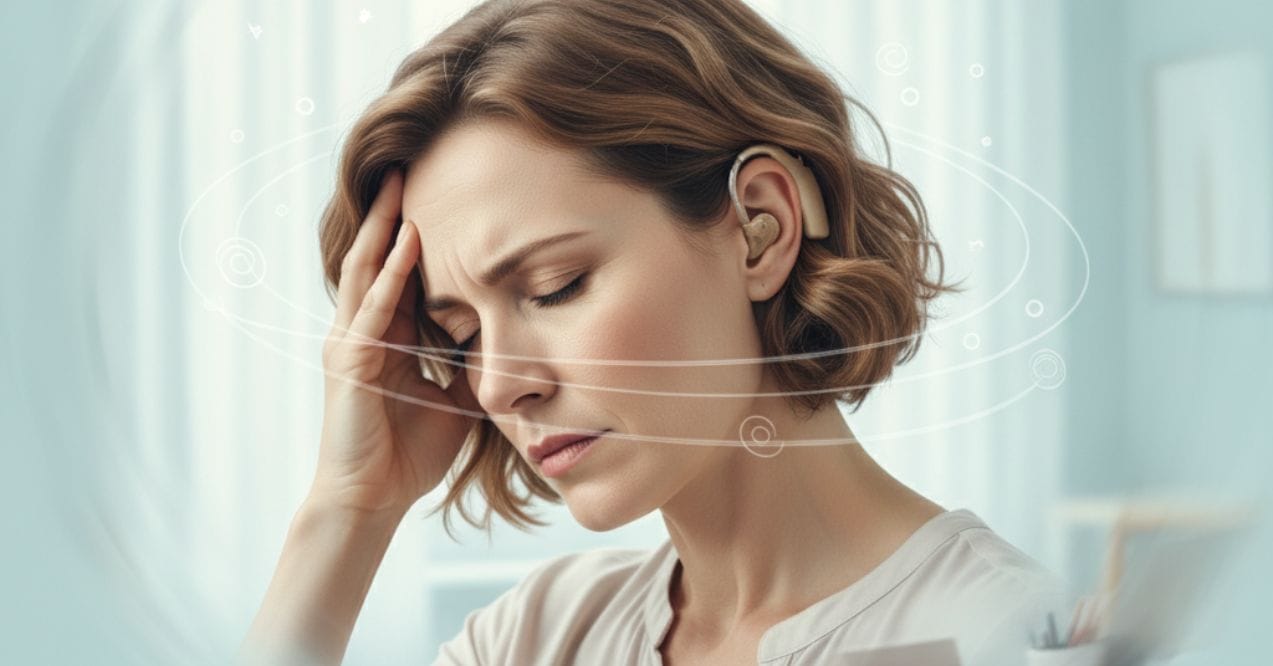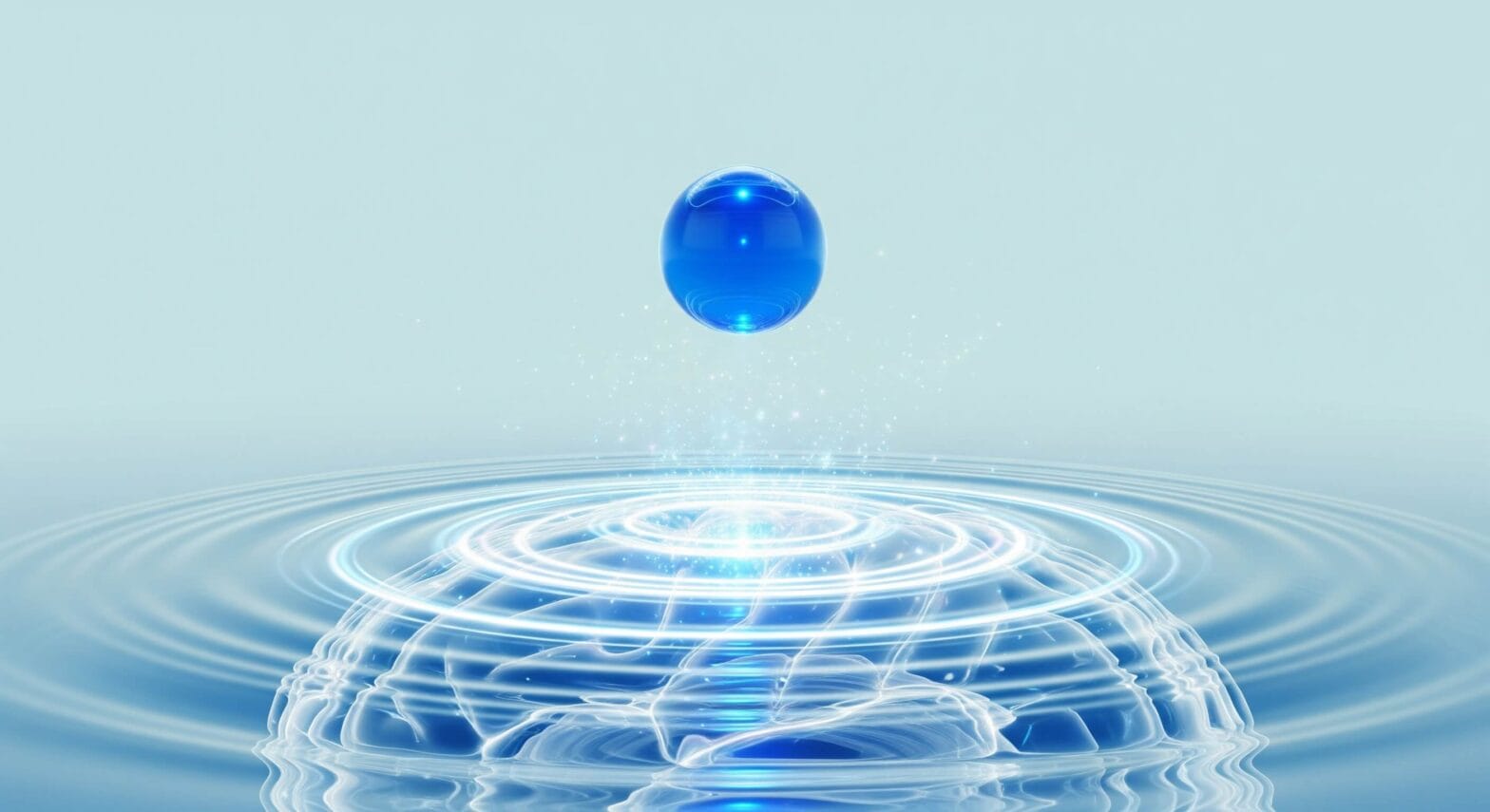What Does a Dehydration Headache Feel Like?
Discover what does a dehydration headache feel like - from throbbing temples to fatigue. Get expert tips to prevent and manage them.


Both dehydration and headaches are common, but many people don’t realize they can be closely connected. A headache might simply feel like a minor issue, but sometimes it’s your body’s way of signaling that it needs more fluids. When your body doesn’t get enough water, you may develop what’s known as a dehydration headache.
Understanding what does a dehydration headache feel like can help you spot the warning signs early and take steps to support your hydration. In this article, we’ll explore what dehydration headaches are, their symptoms, causes, and how to help prevent them.
What Is a Dehydration Headache?

A dehydration headache is a specific type of head pain that occurs when your body doesn’t have enough fluids to function optimally. Unlike tension headaches or migraines, dehydration headaches develop directly from insufficient water intake, making them one of the most preventable types of head pain.
When your body becomes dehydrated, your brain tissue actually loses water and shrinks slightly. This shrinkage pulls the brain away from the skull, creating tension on the pain-sensitive membranes and blood vessels surrounding your brain. The result is the characteristic throbbing or aching sensation that defines a dehydration headache.
Key characteristics of dehydration headaches:
- They often develop gradually as fluid levels drop
- The pain typically worsens with physical movement or bending over
- They commonly occur alongside other dehydration symptoms
- The intensity can range from mild discomfort to severe pain
- They usually improve quickly once you begin rehydrating
Common Symptoms of a Dehydration Headache

Understanding what does a dehydration headache feel like helps you identify this specific type of head pain quickly. These particular symptoms set them apart from other headache types:
Throbbing Pain
The most recognizable symptom of a dehydration headache is a persistent throbbing or pulsing sensation. This pain typically concentrates in your temples, forehead, or the back of your head, creating a rhythmic discomfort that matches your heartbeat.
The intensity can vary significantly throughout the day. You might notice the pain becomes more pronounced when you:
- Stand up quickly or change positions
- Bend over or look down
- Engage in physical activity
- Spend time in hot environments
This throbbing sensation often interferes with your ability to concentrate on daily tasks. The pain may start as a mild ache but can intensify rapidly if you don’t address your fluid intake promptly.
Fatigue and Dizziness
Dehydration headaches frequently occur alongside overwhelming tiredness and lightheadedness. Your body struggles to maintain energy levels when it lacks adequate fluids, leaving you feeling physically and mentally drained.
These symptoms can manifest as:
- Difficulty maintaining focus during conversations or work
- A heavy, sluggish feeling in your limbs
- Mild to moderate dizziness when standing or walking
- An overall sense of weakness that seems disproportionate to your activity level
The combination of fatigue and dizziness can make managing the headache particularly challenging. Your reduced energy levels may prevent you from taking the necessary steps to rehydrate effectively, creating a cycle that prolongs your discomfort.
Sensitivity to Light and Sound
Many people experiencing dehydration headaches develop heightened sensitivity to environmental stimuli. Bright lights that normally don’t bother you may suddenly feel harsh and uncomfortable, forcing you to squint or seek darker spaces.
Similarly, everyday sounds can become amplified and irritating:
- Normal conversation volumes may seem too loud
- Background noise like traffic or music becomes overwhelming
- You might feel the need to retreat to quiet, dimly lit spaces
- Electronic screens may cause additional eye strain and discomfort
This sensitivity often signals that your nervous system is under stress from dehydration. Your brain becomes more reactive to stimuli when it’s not receiving adequate fluid support, making your usual environment feel uncomfortable and overwhelming.
How Dehydration Causes a Headache?
When your body lacks sufficient fluids, it triggers a cascade of changes that directly impact your brain and nervous system. Understanding this process helps explain why maintaining proper hydration levels is essential for supporting your overall well-being and comfort.
Blood Vessel Changes
Dehydration causes your blood vessels to constrict or narrow, reducing blood flow throughout your body, including to your brain. This decreased circulation means your brain receives less oxygen and nutrients than it needs to function optimally. The reduced blood flow creates pressure and tension in the blood vessels surrounding your brain, which translates into the throbbing pain you experience during a dehydration headache.
Electrolyte Imbalance
Your body relies on a delicate balance of electrolytes – minerals like sodium, potassium, and magnesium – to maintain proper cellular function. When you become dehydrated, this balance becomes disrupted, affecting how your nerves communicate and how your muscles contract.
This electrolyte imbalance can:
- Alter nerve signal transmission in your brain
- Affect muscle tension in your head and neck
- Impact your body’s ability to regulate pain signals
- Influence blood pressure regulation
When these systems become compromised, your brain responds with pain signals that manifest as a headache. The combination of reduced blood flow and electrolyte disruption creates the perfect conditions for head pain to develop and intensify.
How to Prevent a Dehydration Headache?

The most effective approach to avoiding dehydration headaches is maintaining consistent fluid intake throughout your day. By supporting your body’s hydration needs proactively, you can significantly reduce your risk of experiencing these uncomfortable symptoms.
Daily hydration strategies:
- Drink water regularly, even before you feel thirsty
- Keep a water bottle nearby as a visual reminder to hydrate
- Start your morning with a glass of water to replenish overnight fluid loss
- Monitor your urine color – pale yellow indicates proper hydration
During physical activity and hot weather:
- Increase your fluid intake before, during, and after exercise
- Choose water over caffeinated beverages, which can contribute to dehydration
- Take frequent hydration breaks during outdoor activities
- Seek shade and cool environments when possible to reduce fluid loss through sweating
Dehydration and Other Health Issues
Dehydration extends beyond headaches and can contribute to various health concerns throughout your body. When your fluid levels drop, multiple systems struggle to function properly, potentially leading to complications that affect your daily comfort and well-being.
One common question people ask is can dehydration cause a UTI. While dehydration doesn’t directly cause urinary tract infections, insufficient fluid intake can create conditions that may increase your risk. When you don’t drink enough water, your urine becomes more concentrated, and you urinate less frequently. This reduced flushing action can allow bacteria to remain in your urinary tract longer than ideal.
Proper hydration supports:
- Regular urination that helps flush bacteria from your system
- Diluted urine that creates a less favorable environment for bacterial growth
- Overall urinary tract health and function
Another frequently asked question is can dehydration cause swollen lymph nodes. Dehydration can impact your lymphatic system’s ability to function optimally. When your body lacks adequate fluids, lymph circulation may slow down, potentially affecting how efficiently your immune system processes toxins and waste products.
Maintaining proper hydration supports your body’s natural filtering and immune functions, helping these systems work more effectively.
Final Thoughts
So, what does a dehydration headache feel like? These preventable headaches typically present as throbbing pain accompanied by fatigue, dizziness, and sensitivity to light or sound. Understanding these symptoms empowers you to take proactive steps toward maintaining proper hydration. By drinking water consistently throughout your day, you can support your body’s natural functions and alleviate the discomfort associated with dehydration headaches.
Dehydration headaches typically present as throbbing pain in your temples or forehead, accompanied by fatigue, dizziness, and sensitivity to light or sound. You may also experience difficulty concentrating, weakness, and worsening pain when bending over or moving quickly.
Begin by drinking 16-20 ounces of water immediately, then continue sipping smaller amounts every 15-20 minutes. The key is consistent fluid intake rather than consuming large quantities at once, which supports your body’s natural rehydration process more effectively.
Serious dehydration signs include dark yellow urine, extreme thirst, dry mouth, rapid heartbeat, and confusion. If you experience severe dizziness, fainting, or inability to keep fluids down, seek immediate medical attention as these symptoms indicate your body needs professional support.
Sign up for our Healthy Living newsletter!
Advertisement. This site offers health, wellness, fitness and nutritional information and is designed for educational purposes only. You should not rely on this information as a substitute for, nor does it replace, professional medical advice, diagnosis, or treatment. If you have any concerns or questions about your health, you should always consult with a physician or other health-care professional. Do not disregard, avoid or delay obtaining medical or health related advice from your health-care professional because of something you may have read on this site. The use of any information provided on this site is solely at your own risk.










